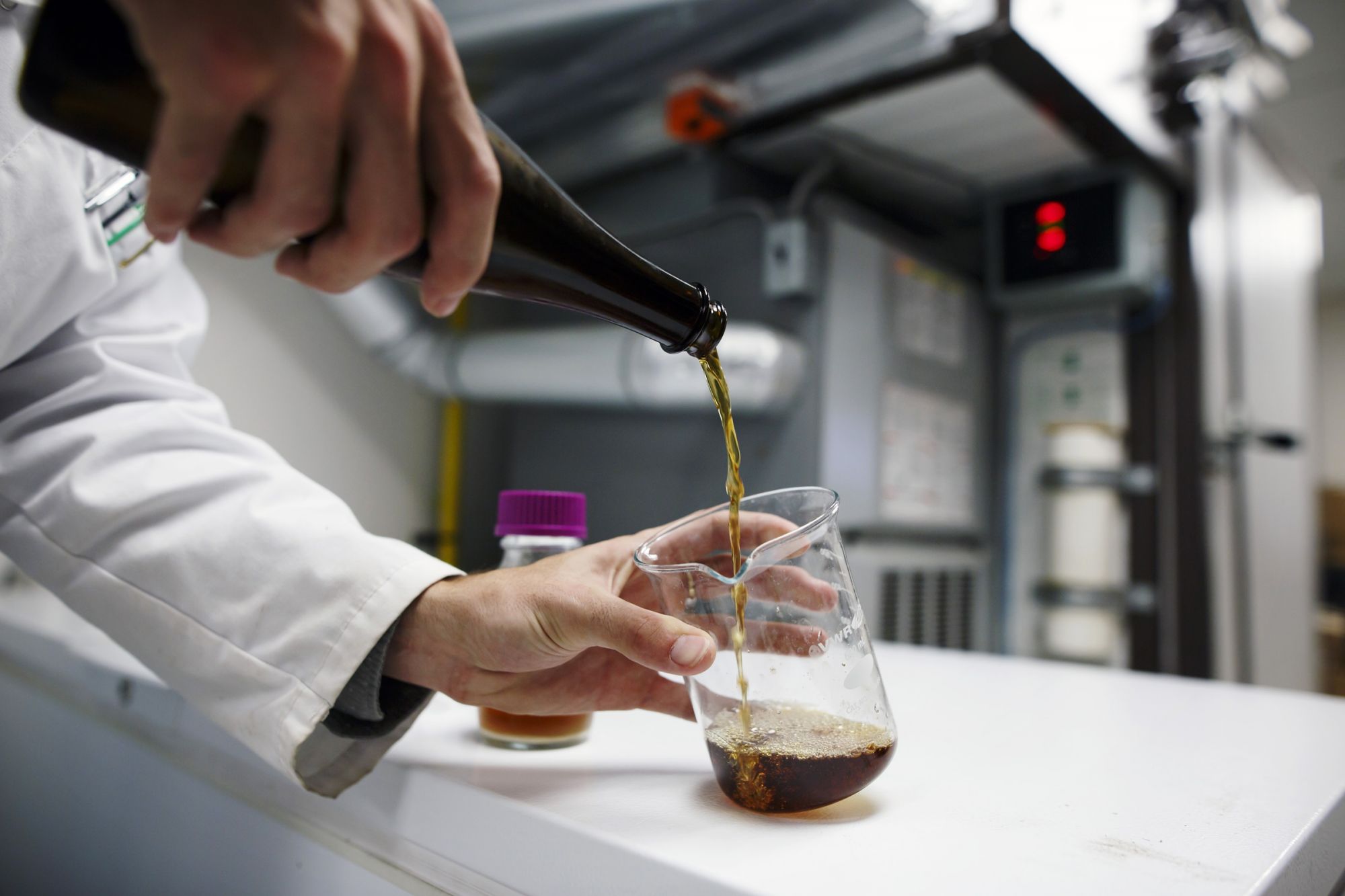
THC and CBD offer a middle ground between tequila and espresso for those who desire a mindful, yet relaxing way to unwind (without the hangover).
Opinions expressed by Green Entrepreneur contributors are their own.
A benefit of being on the road is the perspective that I gain from speaking to cannabis entrepreneurs from around the globe. Watching brand-new businesses emerge from each wave of legalization is truly exhilarating. Of all the creative, innovation-driven new markets, food + beverage shows by far the most potential for cannabis entreneurs.
We’ve seen remarkable growth in this category since the widespread legalization of hemp-derived CBD in the United States and Canada. As more consumers discover and enjoy the supplement-like benefits of CBD and THC, more are requesting sippable, snackable products.
Related: Is Social-Dosing the New Microdosing?
The big brands want to party.
Industry giants including MillerCoors, Coca-Cola and InBev have been actively investing in the industry for some time, from research to acquisition of small, successful hemp and cannabis brands. How can independent companies stay in the game?
I recently asked my colleague Dennis Hunter, founder and CEO of CannaCraft, what he imagines is the future of this category. He agrees that “it makes sense for alcohol companies to be focused on the cannabis space, they see the growth potential and they bring with them experience in large-scale manufacturing and distribution — things that cannabis companies are just now being granted the opportunity to do with changing regulations.”
Hunter goes on to note, “…I think we will continue to see additional industries take a stake in cannabis as more synergies are identified in products and operations.” Smoother processes, more reliable recipes, fully-staffed research and development teams, and sophisticated sales and manufacturing pipelines can certainly give well-organized upstart projects an edge.
Scientific research, long stymied by prohibition, is beginning to confirm evidence of the many benefits people gain from ingesting cannabis. Expanding legalization has allowed greater scientific freedom in this realm. With its roots in the medical cannabis industry, products made from legal hemp, cannabis, and its extracted forms have landed themselves in an interesting space between health/wellness, food/beverage, self-care and strictly regulated pharmaceutical capacities.
Related: This Week in Weed: New York City Cracks Down!
Community wins over competition.
Overwhelmingly positive consumer response to these newly-formed businesses has sharpened the competition for mass-market domination and attracted venture capital to the space. Dennis’ team has prepared for what’s ahead by joining forces with an established beverage brand to create Hi-Fi Hops, a sparkling, zero-alcohol hop water infused with water-soluble THC.
“The CannaCraft and Lagunitas partnership was a natural fit. Our headquarters are right down the road from each other (in Sonoma County, Calif.) and we’ve been fans of one another’s products for years. Although our end products are different, there are a lot of similarities in our processes, values, and corporate cultures,” he said.
The two brands are deeply rooted in their Northen California community. Their partnership has only deepened customer loyalty, while sparking curiosity.
Related: Coca-Cola Is ‘In Talks’ to Make Marijuana-Infused Drinks
Craving something different.
As more consumers explore alternatives to alcohol, THC and CBD offer a middle ground between tequila and espresso for those who desire a mindful, yet relaxing way to unwind (without the hangover). Stepping away from alcohol is as much a social choice as a personal one, but the need for better options has existed since the beginning of time — or at least the beginning of Happy Hour.
I asked Katie Stem, CEO of Peak Extracts, about this niche. She noted, “Consumers currently rely on energy drinks and caffeine as their go-to physiological stimulant, and alcohol to provide the opposite effect. Cannabis consumables will fill out an underserved niche, straddling multiple categories as an anti-inflammatory, pain mediator and intoxicant.”
Her team has been working with the Oregon Medical Marijuana Program since 2014. In 2016 the entered the adult use market. Her company’s early focus on pain management helped Katie acquire a sixth sense for how her customers consume cannabis that guides her product development.
She feels that “not only is [consuming cannabis] much safer than both alcohol and caffeine in terms of toxicity, consumers quickly realize that it can be micro-dosed for a variety of effects and consumed freely without risking a hangover.”
It’s easy to see how bright, ambitious entrepreneurs are quickly reimagining the space that alcohol has inhabited in the American psyche for so long. And if there’s one thing that could use disrupting, it’s hangovers. Luckily there’s a new vibe in town, and it shows little sign of slowing down anytime soon.
https://www.greenentrepreneur.com/article/327749

